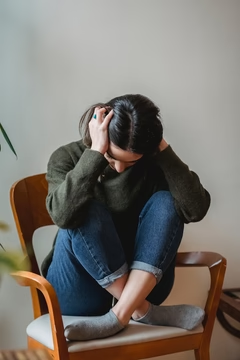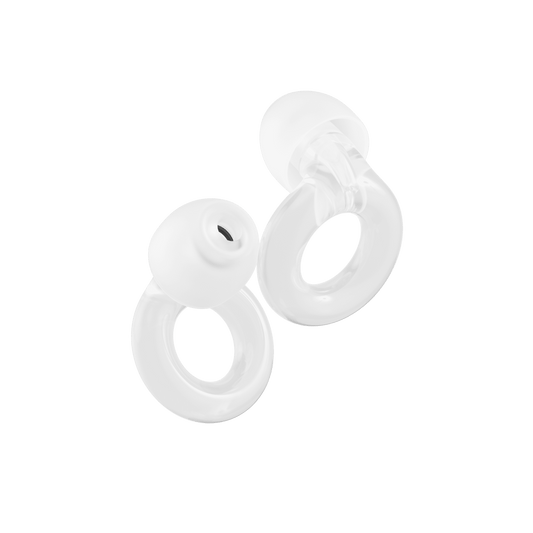Pollution. Ugh.
Let’s face it: it’s a hotly debated topic that inspires many negative thoughts and feelings. And with good reason. Because in the modern world, it’s a very real problem, and something that many people are dealing with daily.
Air pollution. Water. Light. And not forgetting – the dreaded noise pollution. Noise is all around us; it’s a guaranteed constant. We simply have to learn how to live our lives alongside it. And in many cases, how to allow it to enhance our lives for the better.
For example, think of natural noise such as birdsong, waves, or wind in the trees. It’s nature at its best. And something you may actively seek out to feel peaceful or calm. But on the flipside, you’re faced with noise such as construction works, traffic jams, and busy crowds. And that’s where noise pollution can come into play.
What is noise pollution? Simply put, noise pollution is the spread of unwanted sounds or disturbances in the environment. And depending on how and where we live our lives, the degree of noise pollution we’re exposed to varies. As human beings, we’re unique individuals who have varying tolerance levels when it comes to noise. And for those who find it difficult, noise pollution can play a huge part in the deterioration of their physical and mental health.
The glaring fact is: human activity is on the rise, and with it comes louder noise levels, resulting in more stress and ill-health. In fact, a 2020 report by the EEA (European Environment Agency), shows that environmental noise, in particular road traffic noise, remains a major (and growing) issue, affecting the health and well-being of millions of people in Europe.
Noise pollution is here and very real. But what impact is it really having on our mental and physical health? And crucially, what can we do to reduce it? Let’s take an in-depth look.
What is too loud? It’s all in the decibels.
Sound is measured in decibels (dB).
Any sudden sound louder than 85 dB can harm a person's ears, with repeated exposure to noise from 70 dB upwards potentially causing permanent hearing issues.
To give you some context, here are some examples of everyday sounds and their dB levels from Noise Awareness:
° Rustling leaves - 20 to 30 dB
° Normal conversation - 60 dB
° Clap of thunder - 120 dB
° Wail of a passing siren - 140 dB
° Fireworks (at 3 feet) - 162 dB
The modern world is full of loud noise. But what damage does it actually do?
What’s the damage?
The effects of noise pollution on human health are many, and differ from person to person. And there’s no doubt about it: both a person’s physical and mental well-being can suffer.
What are the effects of noise pollution?
Here’s what we know:
Mental Health
Ever felt irritated at a thundering, passing motorbike?
Or intense rage at your neighbors’ loud music thumping through the floorboards above?
Most of us have experienced something similar at some point during our life. The truth is, the effects of noise pollution are common. You might find yourself feeling irritable, anxious, frustrated, angry, or sometimes even hysterical.
If you’re subjected to loud noise over a long period of time, it can become unbearable – especially if you feel like you have zero control over the situation. In fact, the feeling of being out of control can often lead to a larger impact on mental health.
To add to that, noise pollution can also affect your sleep. It can mean you:


° Have difficulty falling asleep
° Have an inability to stay asleep
° Wake too early
As a result, memory and concentration can also be affected. Sounds can affect the depth and quality of our sleep, which means it can be a struggle to concentrate or remember things the next day. This can lead to an increase in stress levels and a decrease in productivity levels.
Physical health
The negative effects of noise pollution are many, and can take a toll on your physical well-being. Intense (and prolonged) agitation caused by noise disturbances is a real issue.
It can cause:
° High blood pressure
° Headaches
° Cardiovascular issues such as heart disease and in rarer cases, a heart attack
Long-term subjection to loud sounds can also cause hearing impairment. Such as:
° Hyperacusis (abnormal loudness perception)
° Tinnitus (a persistent high-pitched ringing in the ears)
° Paracusis (distorted hearing)
For some, loud noise can mean raised stress hormone levels and, over time, a negative impact on the nervous system.
And where pregnancy is concerned, a 2018 study found that preeclampsia, a condition that causes high blood pressure during pregnancy, was more common among pregnant people exposed to a higher level of noise pollution.


Children and noise pollution
It may not be immediately obvious, but children can be particularly vulnerable to the harmful effects of noise pollution, sometimes resulting in noise-induced hearing loss. In fact, children exposed to noise disturbance for 8 hours a day or more could be subjected to permanent hearing changes, including not being able to hear certain frequencies.
If children are living with unwanted or loud noise at school or home, it makes it challenging for them to learn. Concentration, communication, speech development, and cognitive performance may become difficult. This often comes hand in hand with confidence levels, meaning a child may struggle to form relationships, experience behavioral problems, and may even develop high blood pressure as a result.
Animals feel it, too.
Human beings are not the only ones affected by noise pollution. Wildlife can also feel the effects.
Animals use sound for a variety of different reasons: to navigate, to find food, to attract mates, and to avoid predators. Unnatural noise that invades and disturbs their environment makes it difficult for them to achieve those things – ultimately impacting their ability to survive.
Ships, drills, and sonar devices in the ocean make an otherwise peaceful environment loud and chaotic. Especially for whales and dolphins who use echolocation to communicate. Sonar sounds can reach as loud as 235 dB and travel hundreds of miles underwater. So it’s no surprise that sonar has been known to cause mass stranded whales on beaches and prevent the natural migration of sea turtles.
How to get noise pollution under control
Noise pollution is a part of the reality we live in.
So, if it’s not always avoidable, we have to learn to live with it. Which means that we have to find ways to make it more bearable.
Here are some things you can do:
Collapsible content
Invest in noise-reducing earplugs
Earplugs and other ear protection can really work to get noise volume under control, making daily life and tasks less taxing. And there are different earplugs for different levels of tolerance and situations that you’re faced with.
Earplugs like Loop Quiet are perfect for blocking out most unwanted noise (they can reduce noise by up to 24 dB), bringing peace and calm back to your world. If you struggle with noise affecting your sleep, earplugs like these can really help you to get that much-needed shut-eye.
If you’re looking to take the edge off, earplugs like the Experience will reduce unwanted noise by up to 18 dB. You’ll be able to stay completely engaged as our new tech means sound isn’t muffled, so you can hear everything you need to.
When you are looking for earplugs that allow you to have conversation freely, without compromising sound quality, the Loop Engage is the perfect Earplug for you. It combats the echoey occlusion effect in your head, helping your voice sounds more natural during conversations.
Reduce noise from appliances
Air con… heaters… fans… the noise they make often becomes part of the background, going mostly unnoticed. But the truth is, they raise the noise levels in your environment by a huge amount. Little things can help. Try keeping them off more often or setting a timer for when they turn on/off. You’ll be surprised at the difference.
Reduce noise from media
We live in a digital world. And with it comes noise from various media. Music, Netflix, Alexa, PlayStation. There’s a whole host of them at play. But try to consider the volume and duration that things are switched on for. Not only will your ears get some peace, but those nearby will thank you as well.
Repair or replace old machinery
While you may have gotten used to the constant intrusive hum of your ancient fridge, it might be time to consider an upgrade. Old appliances (and even vehicles) are often considerably louder than newer models. Have a look around – repairing, replacing, or upgrading may be a wise (and much-needed) option.
Soundproofing
Worrying about noise levels of neighbors (or suffering at the hands of your own), is something most of us have had to deal with at some point. Adding insulation can help, by protecting your household from unwanted noise, and those surrounding your own. Add insulation strategically around the home, or place rugs, carpets and heavy curtains throughout for extra protection.
Make quiet time for yourself
If noise is an integral part of your working and daily life, making sure that you make time for peace and quiet is a must. Think about introducing periods where you have total silence. You could fill the time with reading, puzzles, or light exercise – whatever works for you.
Our noise-reducing earplugs
-
Experience 2
Regular price €29.95Sale price €29.95 Regular priceUnit price perBest for concerts and festivals, live entertainment and sporting events
White noise: is it helpful or harmful?
Is white noise damaging to your hearing? The answer is, it can be.
If you’ve experienced noise pollution or noise sensitivity in the past, you may have found yourself turning to white noise for some relief. And while white noise can be effective at masking noise pollution it can also have adverse effects, especially with loud and prolonged exposure over a certain dB. If you find that using white noise helps you, then make sure it’s at a safe volume and distance before use. Check out further advice from The Sleep Foundation here.
When’s the right time to seek help?
Are you bothered by noise pollution?
Do you find yourself feeling higher levels of anxiety than normal? Or are you experiencing any new physical symptoms such as headaches or tinnitus? It’s time to get some help. And if you feel like insulation isn’t doing the trick or managing devices isn’t working for you, it may be time to speak to a doctor.
Depending on the level of impact and type of symptoms you’re experiencing you may need to see a sleep specialist, a doctor, or a therapist. They could help you with coping techniques or go through any medication options that may be available to you.
Always remember: If excessive noise is not in line with legal limits, report it to your local authority. Whether it’s noise pollution from outdoor events, venues, construction sites, or businesses – if it’s not legal, you shouldn’t be suffering.


Key takeaways
We know that noise pollution is a growing problem. It’s real and we’re living it.
What we’re facing:
° A significant impact on mental health. Along with increased noise pollution may come increased stress, anxiety or depression. Not only those but sleep disorders and issues with memory and concentration are also common.
° Our mental well-being isn’t the only health issue. Noise pollution can take its toll on the physical too. Increased stress hormones result in higher blood pressure, cardiovascular issues, and hearing impairments, such as tinnitus or paracusis.
° Children are particularly vulnerable to noise pollution, potentially resulting in negative behavior, issues learning and difficulty forging friendships.
° There are things you can do to improve your daily well-being, such as investing in noise-reducing earplugs to give you back some peace.
° Turn down noise in the home and workplace and switch off constant background noise, such as music or the TV. It could really help with concentration and general stress levels.
° Find time to give yourself a break from noise completely. Do some daily activities in silence such as yoga, puzzles, meditation or cooking. You’ll thank yourself in the long-run.
And there you have it. Everything you need to know about noise pollution and its effects. If you’d like to find out more info on our products that can help with noise pollution, check out our range.

Which Loop Earplugs are right for me?
People wear Loops for live music and noise sensitivity, parenting and sleep. Use this guide to determine which Loops ...

Addressing noise disturbances: tips & laws
Learn how to address noise disturbances with practical tips and understand the laws that protect your peace. Essentia...

What Is Noise Pollution and How to Mitigate It
Noise pollution is a harmful or annoying level of noise – which can be a subjective measure In the US, acceptable ...


















